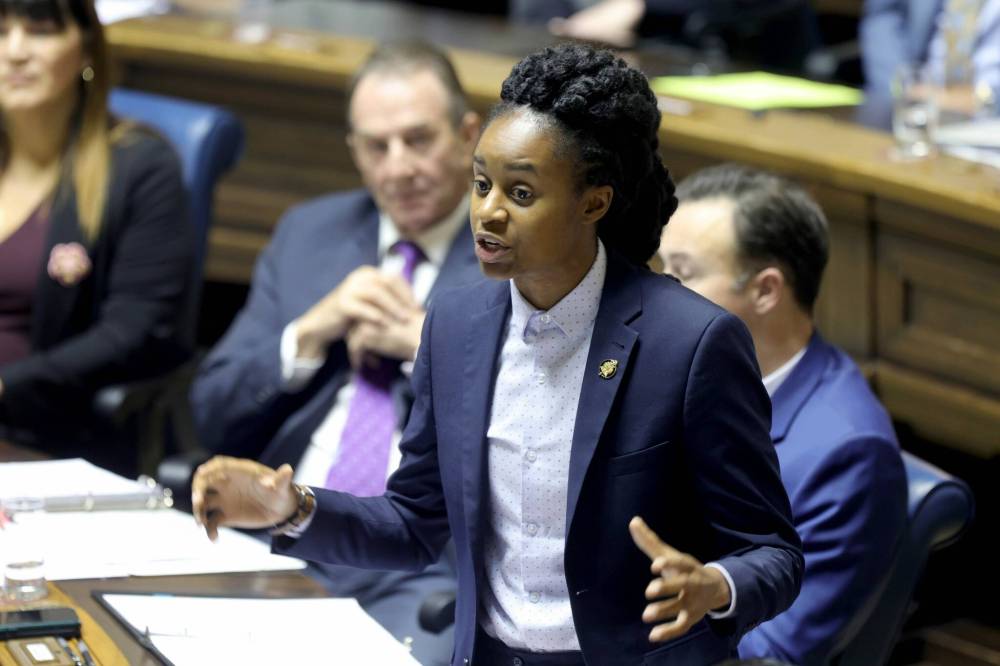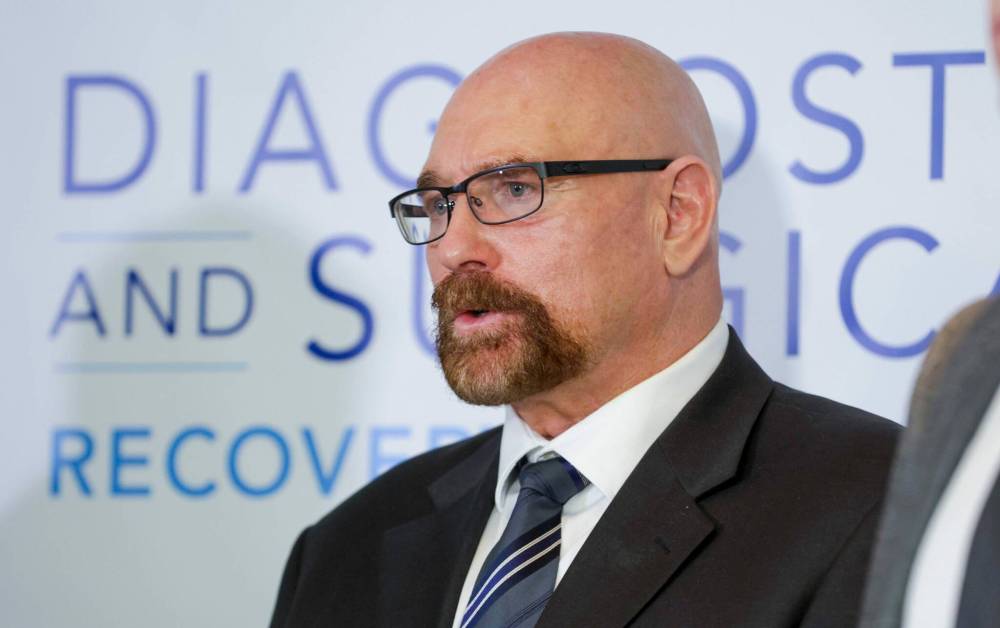‘Basically impossible’ to get clarity on task force’s opaque operations, health minister says
Advertisement
Read this article for free:
or
Already have an account? Log in here »
To continue reading, please subscribe:
Monthly Digital Subscription
$0 for the first 4 weeks*
- Enjoy unlimited reading on winnipegfreepress.com
- Read the E-Edition, our digital replica newspaper
- Access News Break, our award-winning app
- Play interactive puzzles
*No charge for 4 weeks then price increases to the regular rate of $19.00 plus GST every four weeks. Offer available to new and qualified returning subscribers only. Cancel any time.
Monthly Digital Subscription
$4.75/week*
- Enjoy unlimited reading on winnipegfreepress.com
- Read the E-Edition, our digital replica newspaper
- Access News Break, our award-winning app
- Play interactive puzzles
*Billed as $19 plus GST every four weeks. Cancel any time.
To continue reading, please subscribe:
Add Free Press access to your Brandon Sun subscription for only an additional
$1 for the first 4 weeks*
*Your next subscription payment will increase by $1.00 and you will be charged $16.99 plus GST for four weeks. After four weeks, your payment will increase to $23.99 plus GST every four weeks.
Read unlimited articles for free today:
or
Already have an account? Log in here »
Hey there, time traveller!
This article was published 07/12/2023 (724 days ago), so information in it may no longer be current.
Manitoba’s surgical and diagnostic recovery task force spent more than $5 million on salaries over the past year, and the current government said it has not been able to get a full picture of task force financials or decision-making.
More than a dozen of the 66 full-time salaries paid by the now-decomissioned task force were between $200,000 and $500,000, with the information technology lead earning $566,990 and executive director David Matear earning $321,523 in 2022-23.
Project managers were pulling in upwards of $230,000 and executive assistants were making more than $200,000 a year, according to figures provided by the provincial finance division to the health minister’s office in response to a Free Press request.
Health Minister Uzoma Asagwara said Thursday the salary figures are concerning because the current government doesn’t know what compensation structure the task force was using or why salaries were so high.
Asagwara also said it’s concerning it took so long to provide information that should have been readily available to government.
RUTH BONNEVILLE / WINNIPEG FREE PRESS FILES NDP Health Minister Uzoma Asagwara says the salary figures for members of Manitoba’s surgical and diagnostic recovery task force are concerning because the current government doesn’t know why they were so high.
“I think it should always concern folks when government establishes a task force that has a ton of power and a ton of resource and very little accountability. That’s not an approach that Manitobans should expect,” the health minister said.
The task force was commissioned to reduce the pandemic-induced backlog in surgical procedures in the province.
The provided figures show the task force spent $1,637,070 on staffing in the first quarter of this fiscal year, $5,177,373 in 2022-23, and only $799,622 in 2021-22.
The task force was created by the Progressive Conservative government in December 2021. It also employed staff who weren’t based in Manitoba, paying those remote workers a total of $722,028 in 2022-23 and $225,000 in the first quarter of 2023.
The Free Press was not successful in reaching former task force members Thursday.
“I think it should always concern folks when government establishes a task force that has a ton of power and a ton of resource and very little accountability. That’s not an approach that Manitobans should expect.”–Health Minister Uzoma Asagwara
While declining to disclose the information still being sought, Asagwara said it has been “basically impossible” to get clarity on how the task force was making financial decisions, including compensation models and contracts.
The task force’s financial decision-making can’t be separated from its ability to make decisions for the good of Manitoba’s health-care system, Asagwara said.
“The previous government decided to establish a task force that had little to no accountability to the government or to health authorities or to system leaders, and so the task force was making decisions in some situations that were not aligned with what the system in Manitoba actually needed, and it was causing great disruption,” the minister said.
RUTH BONNEVILLE / WINNIPEG FREE PRESS FILES Task force executive director David Matear earned $321,523 in 2022-23.
In a written statement, Tory health critic Kathleen Cook called out the lack of a plan to replace the task force.
“The task force was always intended as a temporary measure to clear diagnostic and surgical backlogs faster in the short term,” said Cook (Roblin).
“The NDP has cut the diagnostic and surgical task force with absolutely nothing in place to improve capacity or health-care staffing in Manitoba for patients that are waiting for care right now.”
The PCs haven’t specifically stated the task force shouldn’t have been disbanded.
Asked about the salaries in a scrum with reporters at the legislature, Tory finance critic and Fort Whyte MLA Obby Khan said 85,000 Manitobans got the care they needed via the task force, and echoed his caucus colleague’s argument that it shouldn’t have been cut without another plan in place.
When he hit pause on the panel’s operations in late October, Premier Wab Kinew pointed to a lack of financial oversight and said he wanted to review expenditures. The NDP government later announced the task force would be disbanded, and no new out-of-province surgeries — save for those already in the queue — would be approved.
A crucial reason for that decision, Asagwara said, was that the government determined it wasn’t a priority for the task force to help Manitobans get surgeries and diagnostic tests at home.
“It was very clear that (the task force) had no interest in building capacity in Manitoba, which is where Manitobans should be able to count on receiving quality care,” Asagwara said.
The province has said it continues to honour ongoing task force contracts, and the health minister’s office said it couldn’t disclose the cost of out-of-province surgeries arranged through the task force, “as they are proprietary to the contracted hospitals/surgical facilities.”
— with files from Danielle Da Silva
katie.may@freepress.mb.ca

Katie May is a multimedia producer for the Free Press.
Our newsroom depends on a growing audience of readers to power our journalism. If you are not a paid reader, please consider becoming a subscriber.
Our newsroom depends on its audience of readers to power our journalism. Thank you for your support.






